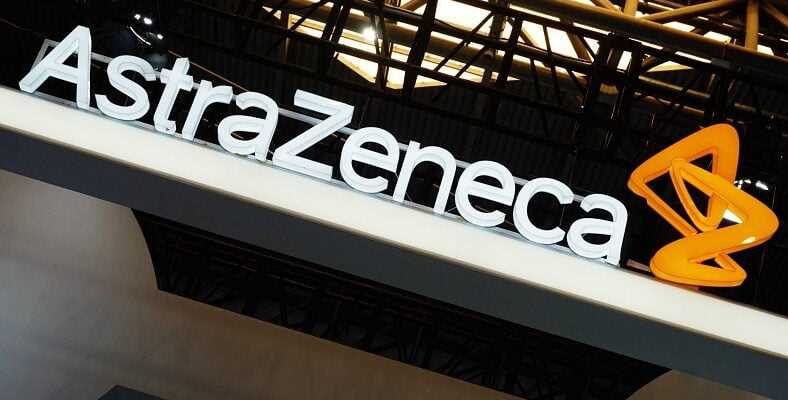AstraZeneca does not suffer from geopolitics on the stock market on Monday; its shares rose by more than 3% in London, beyond 9,100 pence, signing one of the best performances of the European Stoxx 600 index, in a market generally oriented downwards. The British pharmaceutical laboratory, known to the general public as being one of those who have developed a vaccine against Covid-19, stands out today for its advances in the treatment of cancer. He announced this morning that his drug candidate Enhertu – initially developed solo by the Japanese Daiichi Sankyo with whom the British entered into a partnership in 2019 – allows women with a certain type of breast cancer and treated with his experimental treatment by injection to see their life expectancy extended.
The clinical study, dubbed “Destiny-Breast 4”, is currently in phase III, the last stage before a possible marketing that the health authorities of the countries will allow or not, after examining the data. These show a statistically and clinically significant improvement in progression-free survival (PFS) and overall survival (OS) in patients with unresectable HER2-weak and/or metastatic breast cancer, compared to choice of conventional chemotherapy.
HER2 is a receptor which, if it is overexpressed, ie if its presence increases abnormally in the body, promotes the growth of cancer cells. Patients with HER2-positive cancer can be treated with treatments that target this genetic mutation, based on the antibody trastuzumab deruxtecan, present in Enhertu.
“New Hope”
The “Destiny-Breast 4” clinical trial answers in the affirmative the question whether HER2-low patients can be treated with trastuzumab deruxtecan. “There are very few treatment options for these patients”, explains the financial analyst Martial Descoutures of the private bank Oddo BHF, who recommends the purchase of AstraZeneca on the stock market, to aim for 11,000 pence. The clinical results of Enhertu, which moreover do not testify “no security issues”represent “a new hope” for these patients. In September, the British giant announced that Enhertu was more effective than Kadcyla from Roche, the world number one in oncology.
“We look forward to sharing the detailed results of this study with the medical community and to entering into discussions with regulatory bodies around the world with the goal of bringing Enhertu to patients with metastatic breast cancer previously thought to be HER2-negative »reacted Ken Takeshita, head of research Daiichi Sankyo.
The detailed results will be presented in June, during Asco (American Society of Clinical Oncology), the major annual meeting for clinical research in oncology.
“Enhertu is clearly on the right track to becoming a very important drug”according to the analysis division of the bank UBS. “There are more than double the number of patients in the HER2-low treatment setting than in the HER2-positive category and there is a long list of cancer types for which HER2-low expression is relevant. » UBS also advises the purchase of AstraZeneca on the stock exchange with, for its part, a target price of 10,000 pence. Among the questions that still need to be answered, the bank wonders whether the medical community will be willing to accept the classification of HER2-low breast cancer as a disease in its own right.
